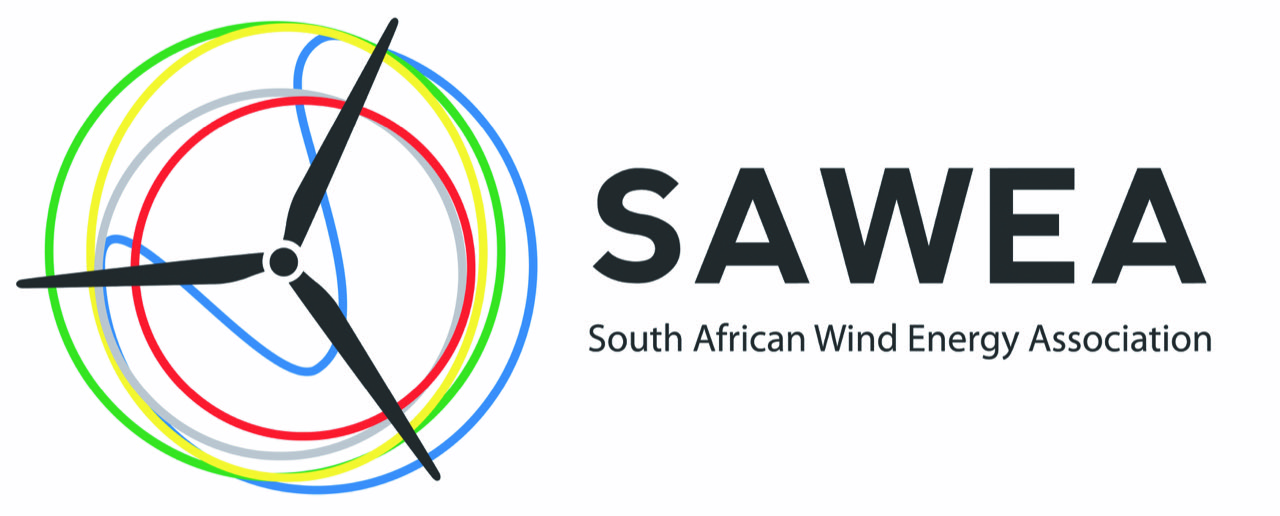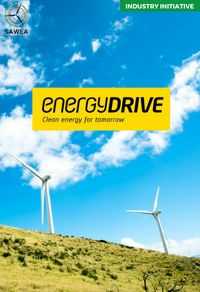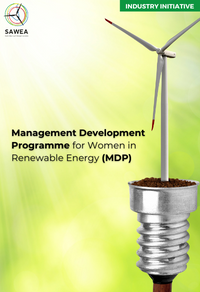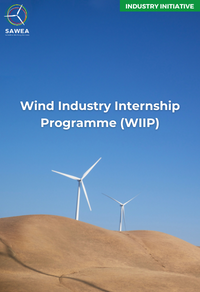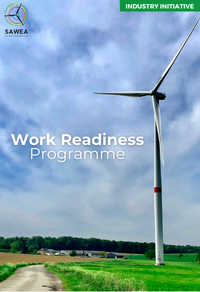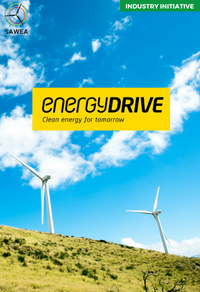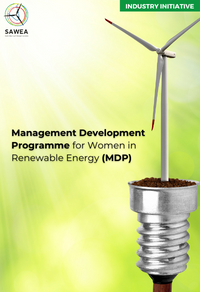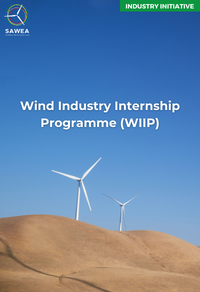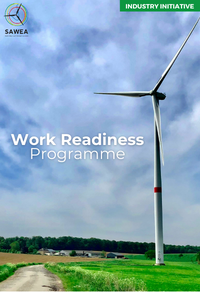SAWEA set to advocate for the Nation's Wind Energy Sector at COP28
The South African Wind Energy Association (SAWEA) proudly announces its accreditation to attend the United Nations Climate Change Conference, COP28, in the United Arab Emirates.
Keen to amplify the voice of the country’s Wind Energy Sector on a global platform, this is the first time that the association will actively participate in this conference, seizing a significant opportunity to advocate for the wind energy sectors role in the country’s energy mix, whilst showcasing the achievements and challenges of the country's wind energy initiatives.
Niveshen Govender, leading the association's delegation, emphasizes the importance of the attendance, stating, "The conference's robust agenda will provide SAWEA with invaluable insights, aligning its programmes with international standards while considering the unique needs of the South African context. Additionally, our presence at the conference will allow us to share achievements, and position South Africa as an attractive investment destination for renewable energy infrastructure projects that will assist the country with its energy crisis and strengthen our role in South Africa's Climate Change agenda, a significant priority for our developing nation."
It is two years since South Africa released its nationally determined contribution under the Paris Agreement, committing to new 2030 emissions reduction targets that shifts the country’s commitments closer to what is needed globally, to limit warming to 1.5 degrees Celsius, according to criteria used by Climate Action Tracker.
Furthermore, the association will join the Global Wind Energy Council in several critical roundtable discussions, further engaging with energy authorities, policy makers and industry thought leaders in response to COP28’s Campaign focused on tripling renewables by 2030, an ambitious target of 11 000GW of global power capacity.
Dubbed the “Global Stocktake,” this year's conference focuses on assessing global progress on the Paris Agreement, a pivotal benchmark in climate action and will help to unpack South Africa's current emission trends. The results are expected to be sub-optimal and should encourage Governments around the world to accelerate climate action. SAWEA strongly believes that wind power has a vital role to play, to ensure that we are back on track to meet our national and global commitments.
The conference will tackle the collective global advancements towards fulfilling the objectives of the Agreement, with a specific focus on fostering action support and international cooperation. For the SAWEA team, this presents a unique opportunity to analyze potential shifts and adjustments to rectify the current trajectory, delve into wind infrastructure investment, and promote global collaborations. Additionally, the team will engage in knowledge exchange, skills development, global policy alignment, and collaborative efforts in wind energy research, amongst other key areas.
Govender asserts, "Renewable energy, particularly wind energy continues to lead the energy transition to a low-carbon renewable energy future by producing 46.4TWh, powering 3.6 million average households annually in South Africa alone. It is evident that wind energy offers a clear pathway to achieving necessary emission cuts swiftly, being a safe, reliable, affordable, widely available, and emission-free technology."
In conclusion, the association reiterates that its delegation looks forward to COP28's dialogues, fostering collaborations, and advancing the adoption of renewable energy technologies on the global stage.
"Engaging with stakeholders globally will fortify our efforts in promoting and advocating for renewable energy adoption, to help address climate change challenges,” concludes Govender.
Note:
South Africa has committed to moving towards a goal of reaching net-zero carbon dioxide emissions by 2050, setting the stage for the country to heavily invest in clean power while accelerating a transition away from coal. This places a much-needed emphasis on ensuring that everyone benefits in a shift to a more sustainable economy, especially the poorest and most vulnerable communities, while also ensuring a just transition for workers.
South Africa is a party to both the United Nations Framework Convention on Climate Change (UNFCCC) and its Kyoto Protocol, having acceded to the Convention in 1997 and ratified the Kyoto Protocol in 2002.
